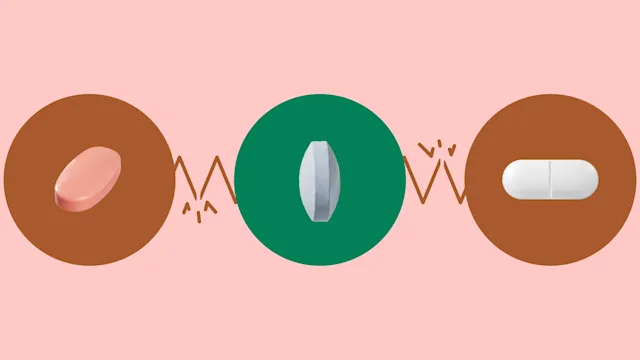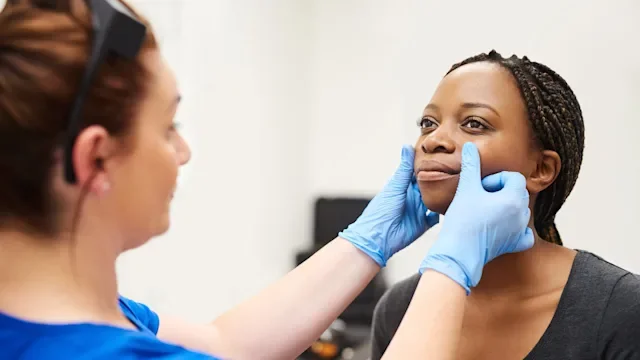A number of things in your environment or lifestyle can trigger migraines. For example, you might struggle with migraines around the time of your period, when you don’t get enough sleep, or after eating certain foods.
That said, one of the biggest migraine triggers for many people is stress. In fact, studies show that about 70 percent of people who get migraines list stress as a trigger, according to the American Migraine Foundation.
Stress and migraines: a two-way street
What comes first: the stress or the migraine?
It’s tough to say. There’s a reciprocal relationship between migraines and stress. High levels of stress can trigger a migraine, and suffering from a migraine may add stress to your life. In a cruel cycle, that added stress could fuel the migraine and make it harder to treat.
“If you think about it, if you're working really hard all day, that muscle tension and strain sometimes can trigger the headache in and of itself,” says Sylvia Mohen, MD, Neurologist in New York City. “Just having chronic stress makes you more susceptible to go into pain cycles [due to] having those stress hormones present all the time.”
Migraines and stress letdown
It’s pretty intuitive that feeling stressed and tense can increase your risk of a migraine. Less obviously, a sudden drop in stress levels may also trigger a migraine. This is called a stress letdown migraine.
Stress letdown migraines may be common during the first few days of a vacation, for example. Perhaps you’ve been really stressed at work and trying to meet deadlines. Maybe you were racing to get all the travel logistics ironed out before the flight. Then, when you settle into your hotel room and hit the beach, stress levels drop suddenly.
“Sometimes it's just being very stressed out [that] can trigger the headache, and sometimes it's almost like the release of that tension can trigger the headache,” says Dr. Mohen.
Interrupting the cycle
Because of the stress-migraine cycle, one of the best lifestyle changes you can make is to reduce and manage your stress levels. Dr. Mohen particularly recommends exercise for this reason.
- PropranololGeneric Inderal
- ImitrexSumatriptan
- AmitriptylineGeneric Amitid and Amitril and Elavil and Endep
“One of the reasons we think exercise is so important is that it can be a very important way to decrease your stress levels and decrease your stress hormones,” she says.
Additionally, Dr. Mohen recommends taking breaks when you’re feeling overwhelmed. This may mean taking a walk or meditating during the work day, but it also might mean being intentional about which social events you attend. Overextending yourself socially can sometimes be just as stressful as a hectic work schedule.
“If you're really having trouble managing stress with your migraines, I think it's important to develop a good relationship with the migraine expert [and] come up with different ways you can maybe reduce stress in your life and reduce your migraine burden,” says Dr. Mohen.
Sylvia Mohen, MD, is a Neurologist at New York Neurology Associates, P.C.
Dr. Alizadeh is a board-certified Plastic Surgeon with private practices in New York City and Long Island and formerly served as the Chief of Plastic and Reconstructive Surgery at Westchester Medical Center and New York Medical College.
References
American Headache Society. (n.d.). From the journal - new research on forecasting migraine attacks has the headache community talking.
American Migraine Foundation. (2017). Stress and migraine.
American Migraine Foundation. (2017). Top 10 migraine triggers and how to deal with them.
Houle, T.T., et al. (2017). Forecasting individual headache attacks using perceived stress: development of a multivariable prediction model for persons with episodic migraine. Headache.
Maleki, N., et al. (2012). Migraine: maladaptive brain responses to stress. Headache.

Why trust our experts?














